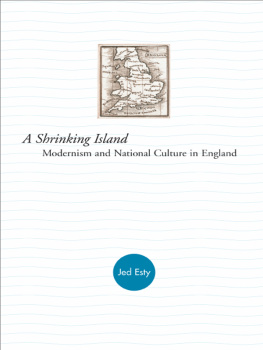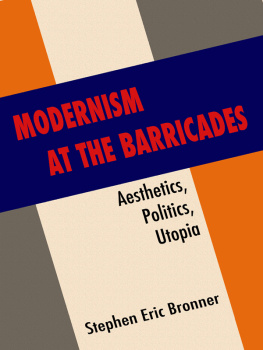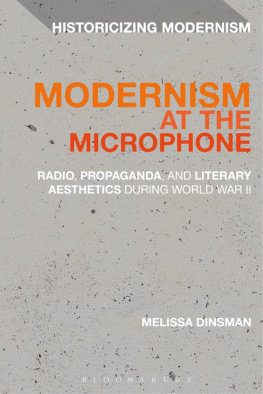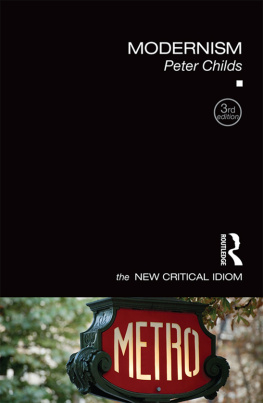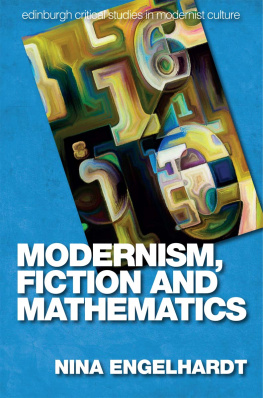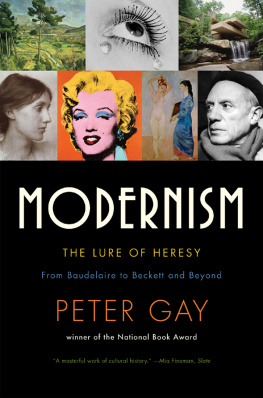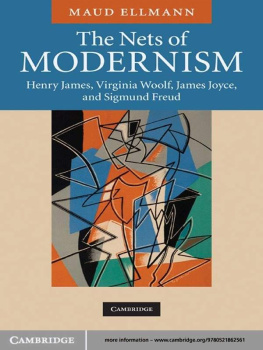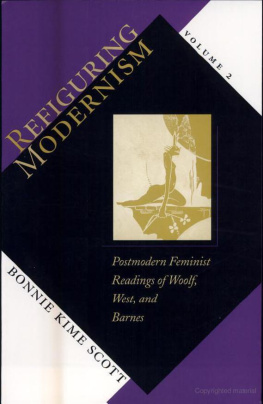A SHRINKING ISLAND
A SHRINKING ISLAND
MODERNISM AND NATIONAL CULTURE IN ENGLAND
JedEsty
PRINCETON UNIVERSITY PRESS
PRINCETON AND OXFORD
COPYRIGHT 2004 BY PRINCETON UNIVERSITY PRESS
PUBLISHED BY PRINCETON UNIVERSITY PRESS, 41 WILLIAM STREET,
PRINCETON, NEW JERSEY 08540
IN THE UNITED KINGDOM: PRINCETON UNIVERSITY PRESS, 3 MARKET PLACE, WOODSTOCK, OXFORDSHIRE OX20 1SY
ALL RIGHTS RESERVED
LIBRARY OF CONGRESS CATALOGING-IN-PUBLICATION DATA
ESTY, JOSHUA, 1967
A SHRINKING ISLAND : MODERNISM AND NATIONAL CULTURE
IN ENGLAND / JOSHUA ESTY.
P.CM.
INCLUDESBIBLIOGRAPHICALREFERENCESAND INDEX.
eISBN: 978-1-40082-574-5
1. ENGLISH LITERATURE20TH CENTURYHISTORY AND CRITICISM.
2. MODERNISM (LITERATURE)ENGLAND. 3. LITERATURE AND
ANTHROPOLOGYENGLANDHISTORY20TH CENTURY.
4. LITERATURE AND SOCIETYENGLANDHISTORY20TH CENTURY.
5. ENGLANDINTELLECTUAL LIFE20TH CENTURY.
6. POSTCOLONIALISM IN LITERATURE. 7. IMPERIALISM IN LITERATURE.
8. NATIONALISM IN LITERATURE. I. TITLE.
PR478.M6E85 2003
820.9'112DC212003043315
BRITISHLIBRARYCATALOGING-IN-PUBLICATION DATA IS AVAILABLE
THIS BOOK HAS BEEN COMPOSED IN SABON
PRINTED ON ACID-FREE PAPER.
WWW.PUPRESS.PRINCETON.EDU
PRINTED IN THE UNITED STATES OF AMERICA
1 3 5 7 9 10 8 6 4 2
For JCE and KCE
CONTENTS
ACKNOWLEDGMENTS
THE NAMES listed here testify to the large debt I owe to teachers, scholars, colleagues, and friends. The list, and the sense of gratitude that motivates it, extend well beyond those named here: to the writers who appear in my endnotes, and to many not named who have nevertheless contributed to the making of this book.
To begin with the teachers: Elliot Lilien of Concord-Carlisle High School lit up the big ideas and made historical explanation itself seem important. Mark Wollaeger and Joe Gordon were among my first mentors and have remained model academics even as they have become colleagues and friends. At Duke, I was fortunate to work with an astonishing variety of challenging and generous thinkers, especially Marianna Torgovnick, Fredric Jameson, Eve Sedgwick, and Susan Thorne. I owe a special debt to Michael Moses for intellectual support and friendship.
Many friends at Duke inspired me by the example of their own work and by their gracious responses to mine. I want especially to thank Nigel Alderman, Dan Blanton, Chris Cunningham, Carolyn Gerber, Heather Hicks, John Hunter, Joe McLaughlin, Katherine Stubbs, Maurice Wallace, and John Waters. Conversations with Ian Baucom have made this bookand the process of writing itbetter.
I would also like to acknowledge a lively set of colleagues at Harvard, especially my closest readers in modern British literature, Nick Jenkins, Jesse Matz, and Jonah Siegel. Larry Buell, Phil Fisher, Stephen Greenblatt, Bill Handley, Graham Huggan, Shannon Jackson, Bob Kiely, Becky Krug, Jeff Masten, Peter Sacks, Elaine Scarry,Werner Sollors, and Helen Vendler all responded to my work at various stages, generating new ideas and clarifying old ones.
I spent a year working on this book at the Wesleyan Center for the Humanities, where I encountered a welcoming and vigorous cohort of scholars; I am especially grateful to David Weisberg, Sean McCann, Kach Tololyan, and of course Betsy Traube, for her intellectual leadership and institutional support. There are others from diverse times and places who have (perhaps without even knowing it) contributed ideas and suggestions or valuable advice and encouragement: Perry Anderson, David Bromwich, Jim Chandler, Laura Chrisman, Ed Comentale, Ashley Dawson, Jane Garrity, Michael Gorra, Lanny Hammer, Peter Kalliney, Tamar Katz, David Lloyd, Tim Mitchell, Michael Levenson, Jack Matthews, David McWhirter, Walter Benn Michaels, Peter Merrington, Franco Moretti, Gautam Premnath, Brian Richardson, John Paul Riquelme, Paul SaintAmour, Sanford Schwartz, Robert von Hallberg, Michael Warren, Ayako Yoshino-Miyaura, and the audiences to whom I presented work at Harvard, Northwestern, Chicago, Brown, Colby and Wesleyan.
Jim English, Anne Fernald, Doug Mao, Jesse Matz, Michael Tratner, and Mark Wollaeger all read sections along the way and offered invaluable and timely responses. I would also like to thank Eric Marler, Ansley Dalbo, and Emily Wong for diligent research and Praseeda Gopinath, for thoughtful assistance beyond the call of duty.
More recently, I have been welcomed by a group of true colleagues at the University of Illinois. My thanks to Janet Lyon, Jim Hurt, Zohreh Sullivan, Kwaku Korang, and Joe Valente, who gave me the opportunity to join them and who have always made me glad that I did. Theyalong with Matti Bunzl, Antoinette Burton, Tim Dean, Stephen Hartnett, Suvir Kaul, Ania Loomba, Bill Maxwell, and Julia Walkerread and responded to portions of the manuscript with remarkable intelligence and vision. Along with many other new friends, they have made the University of Illinois a humane and exciting place in which to live, work, think, and write.
There are several supporting institutions to thank for the time and resources I needed to research and write this book: Duke University for a graduate fellowship; the Lilly Library at Indiana University for an Everett Helm Visiting Fellowship; Harvard University for generous research support in many forms; the Center for the Humanities at Wesleyan University; the National Endowment for the Humanities for a 1999 research fellowship; and the English Department, the College of Liberal Arts and Sciences, and the Campus Research Board at the University of Illinois for release time and research assistance.
Mary Murrell at Princeton University Press has been a patient, efficient, and steadfast guide; I thank her, Sarah Green, and Vicky Wilson-Schwartz for their help in realizing the book. I cannot sufficiently thank Jim Buzard and his anonymous counterpart for their astonishingly learned, generous, and insightful readings of the manuscript.
Finally, to the kind of gratitude that extends way before and well beyond this occasion: I dedicate this book to my parents, John and Katharine Esty, who taught me to love words, to be curious about the world, and to finish what I started. And to Andrea, who has made writing the bookand everything elseworthwhile.
I am grateful to the Johns Hopkins University Press for permission to reprint portions of chapters 2, 3, and 4, which originally appeared in ELH 69.1 (2002), the Yale Journal of Criticism 16.1 (2003), and Modernism/Modernity 7.1 (2000).
A SHRINKING ISLAND
INTRODUCTION
LATEMODERNISMANDTHE ANTHROPOLOGICAL TURN
BOTH professional and lay readers in America seem to share an intuitive belief that English literature has suffered a steady decline in the twentieth century and, moreover, that the decline can be correlated to and even explained by the contraction of British power. Yet few would argue that geopolitical power corresponds in a predictable way to literary creativity. If anything, the evidence from the past century points to an inverse relation. We find celebrated literary booms in Revivalist Ireland and in Cold-War Latin America, classic instances of aesthetic experimentation in the semi-peripheral avant-gardes of Russian and Italian futurism, a high index of formal invention in the minor literature of Kafka and Beckett, and linguistic exuberance flowing out of the relative backwaters of Joyces Liffey and Faulkners Mississippi. And yet the idea persists that postimperial English writing, in becoming provincial and ex-centric, also became stale and wan. This view is not restricted to outsiders; consider a fairly typical 1966 statement from the novelist Anthony Burgess:
Next page
